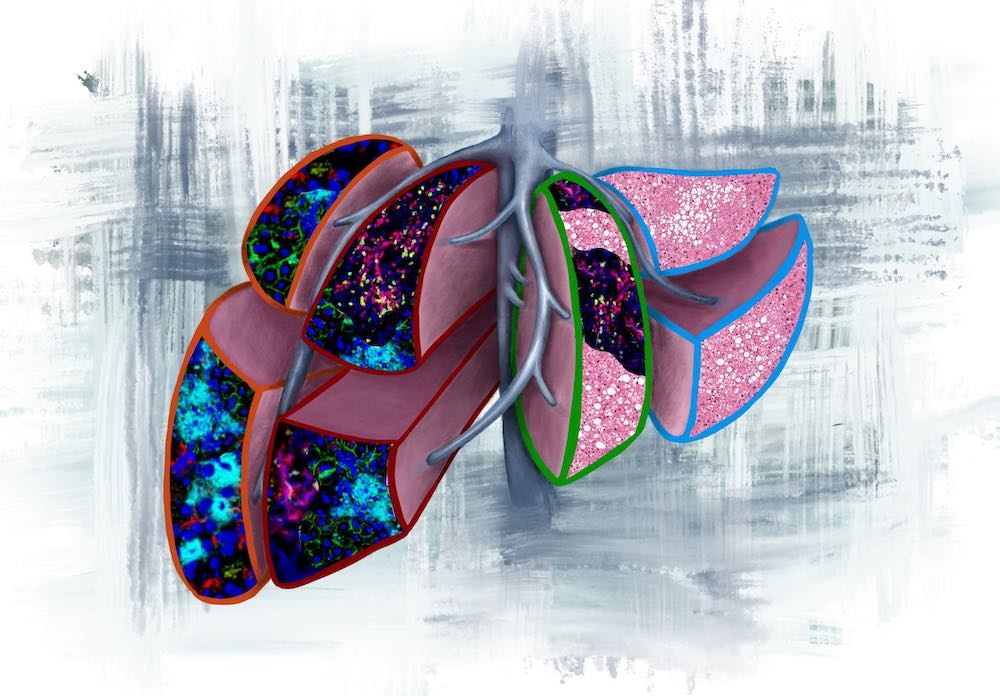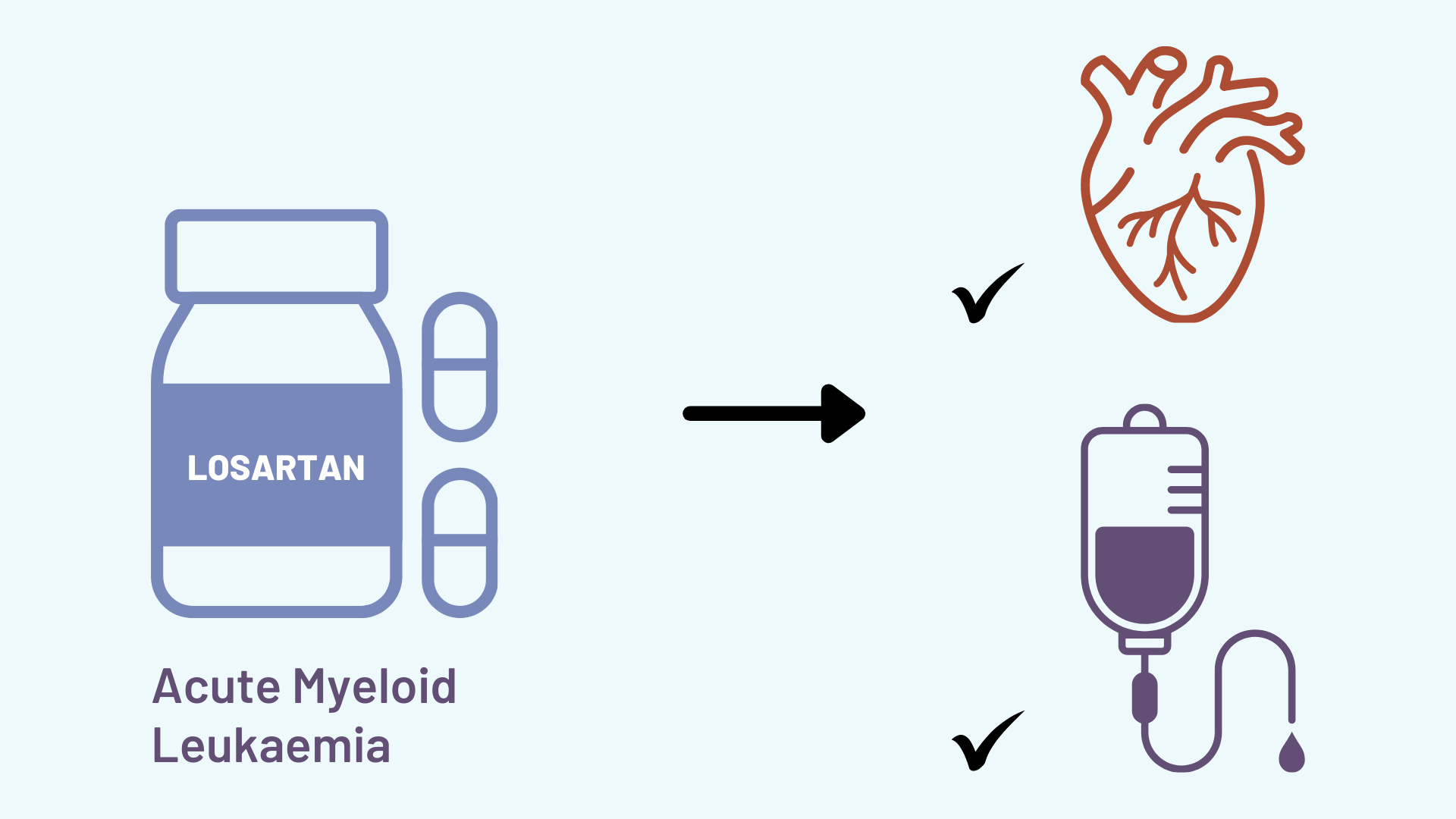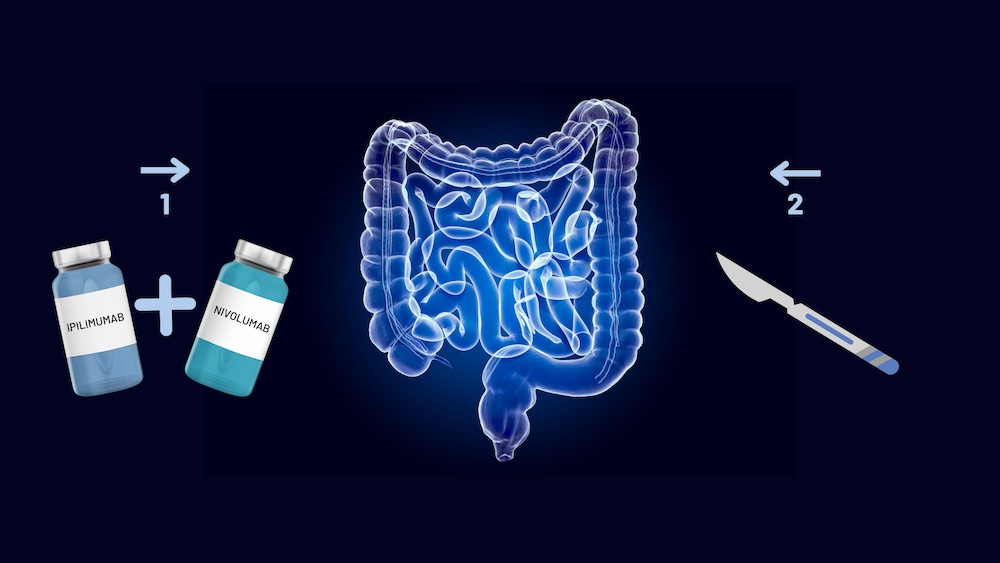News
Liver biopsies can predict when and where pancreatic cancer will metastasise and may guide treatment of early-stage disease
Liver biopsies undertaken at the time of surgery for pancreatic cancer can be used to identify cellular and molecular markers that predict whether early pancreatic cancer will later metastasise to the liver. The study, published in Nature Medicine, June 28,…
Common blood pressure drug could be used in AML to cut cardiotoxicity and improve response to chemotherapy
Treating acute myeloid leukaemia with losartan, a commonly used blood pressure agent, achieved the dual benefits of enhancing chemotherapy efficacy and preventing cardiotoxicity in a mouse model. The study, published in Science Translational Medicine, 19 June, demonstrated both benefits were…
Neoadjuvant immunotherapy delivers unprecedented pathological response in mismatch repair deficient non-metastatic colon cancers
In patients with non-metastatic colon cancer who have mismatch repair deficient tumours, a short course of neoadjuvant immunotherapy (one cycle ipilimumab and two cycles nivolumab) was highly effective. The NICHE-2 trial, published in the New England Journal of Medicine, June…
Generation X will experience higher rates of cancer than earlier generations
At age 60 members of Generation X, defined as people born between 1965 and 1980, are projected to have higher rates of cancer than Baby Boomers, born between 1946 and 1964. The US modelling study, published online in JAMA OpenNetwork,…
Tailoring palliative care visits to patients’ needs saves resources without harm
Stepped palliative care, with visits occurring only at key points in the patient’s cancer journey, resulted in fewer palliative care visits than conventional early palliative care. The study, presented at the American Society of Clinical Oncology (ASCO) meeting, held May…
Using telemedicine in cancer care for environmental and public health benefit
Telemedicine, in addition to patient convenience, offers the environmental benefit of reducing greenhouse gas emissions, with knock-on benefits for people with chronic conditions. The study, presented at the annual meeting of the American Society of Clinical Oncology (ASCO), held May…
HPV vaccination programme will reduce cervical cancer health inequalities
England's HPV vaccination programme is helping to close inequalities in cervical cancer, cutting incidence rates across the socioeconomic spectrum. The study, published in the BMJ, found that the vaccination programme was associated with a substantially reduced incidence of cervical cancer…
Use of e-cigarettes after quitting smoking increases lung cancer risk
Former cigarette smokers who use electronic cigarettes may be at higher risk of lung cancer than those who do not use these devices. The study abstract 3051, presented in a session at the American Thoracic Society 2024 International meeting, held…
Cancer survivors who are less lonely live longer
Greater feelings of loneliness are associated with higher mortality rates among cancer survivors. The study, published in the Journal of the National Comprehensive Cancer Network (JNCCN), April 25, found that cancer patients reporting severe loneliness had a 67% higher all-cause…
Plant-based diets lower risk of progression in prostate cancer
Higher intakes of plant foods following a diagnosis of prostate cancer were associated with lower risks of cancer progression. The study, published in JAMA Netw Open, 1 May, found men diagnosed with early prostate cancer whose plant food intake was…










